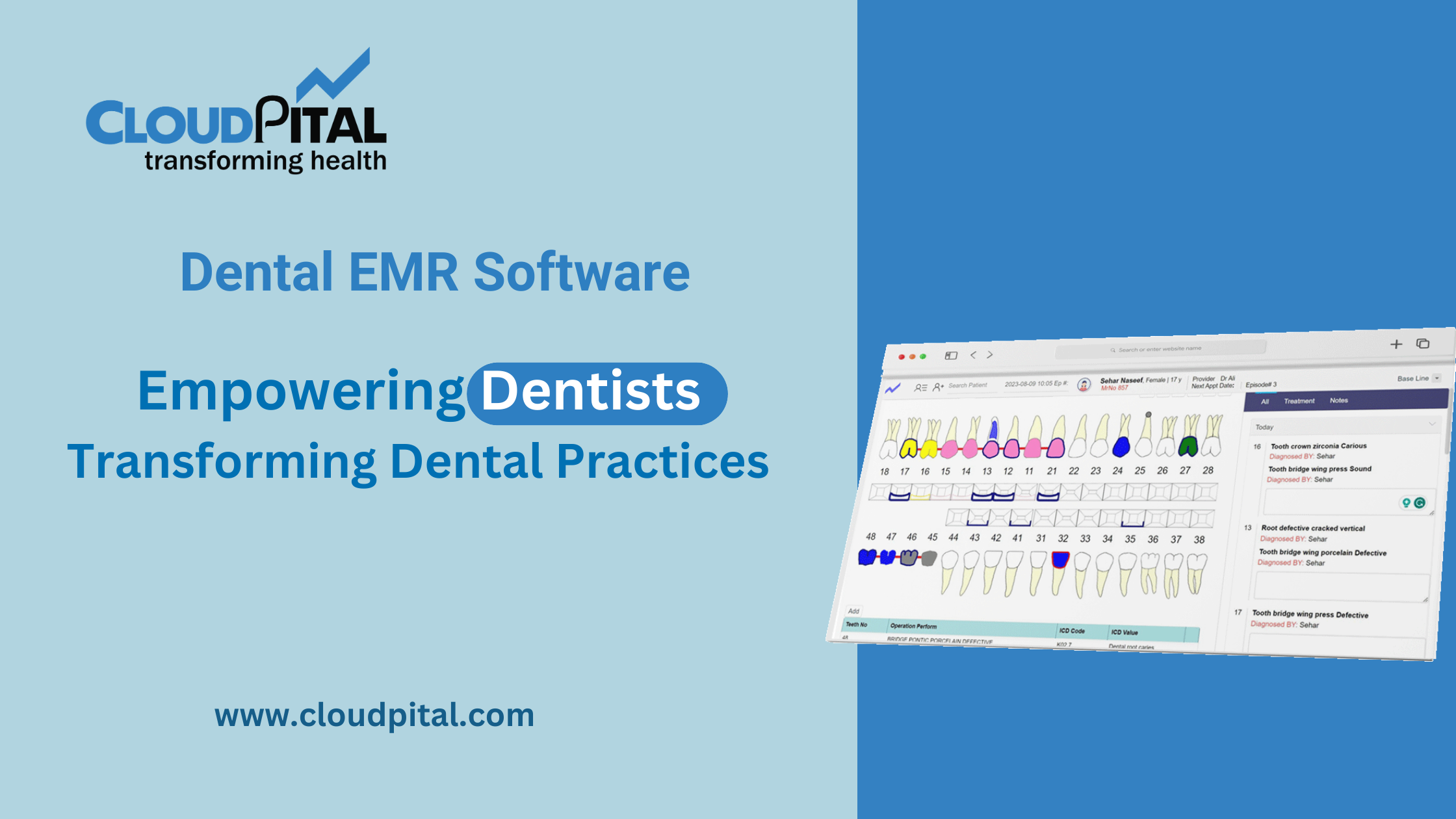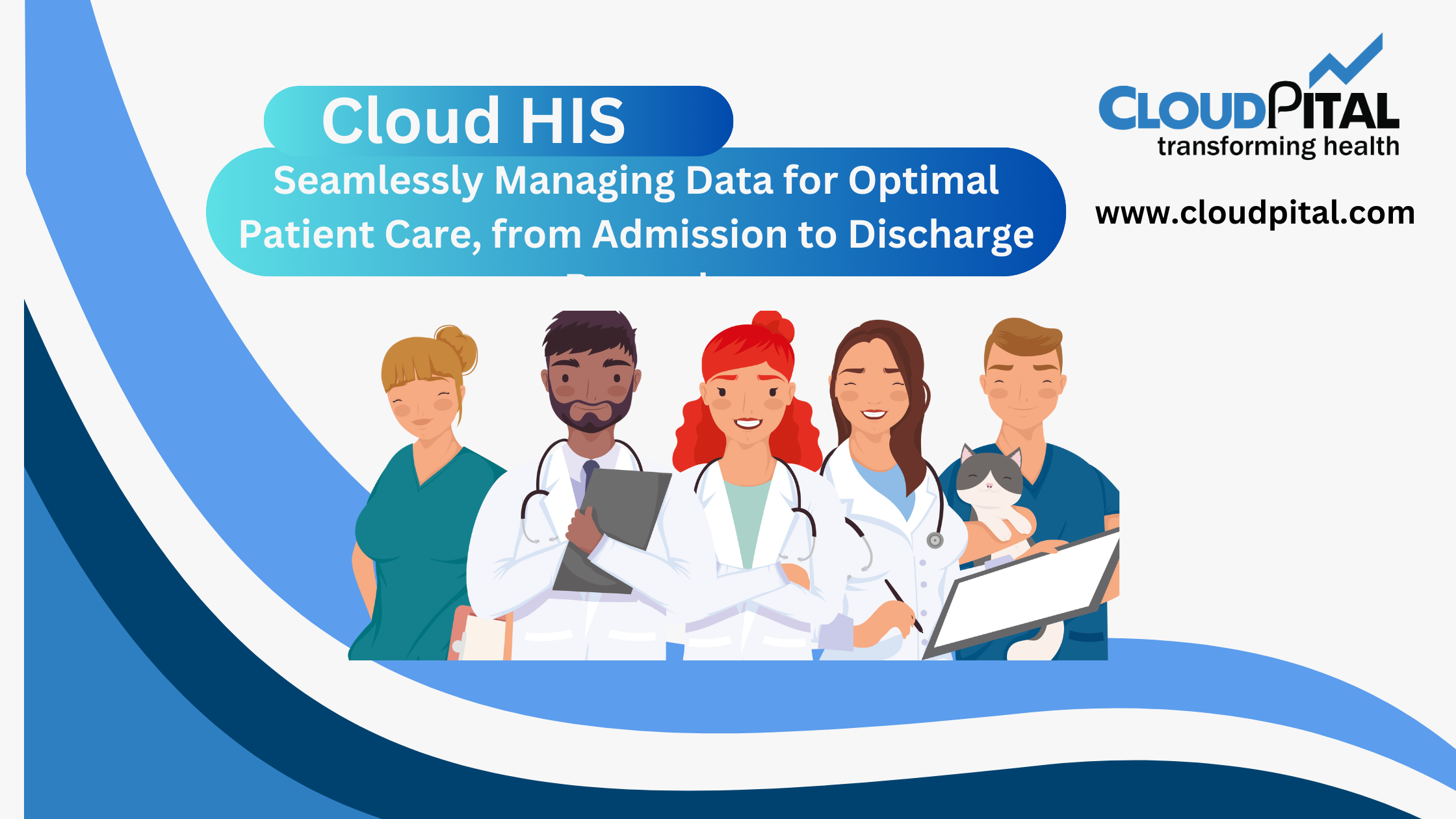Cloudpital # 1 is one of the top RCM is a critical process for healthcare providers, encompassing the entire financial lifecycle of patient care, from appointment scheduling and registration to the final payment of services. Effective RCM systems are designed to optimize the financial performance of healthcare organizations by ensuring that payments are collected efficiently and accurately. This article explores how RCM improves cash flow for healthcare providers by streamlining processes, reducing errors, and enhancing overall financial management.
Click to Start Whatsapp Chatbot with Sales
Mobile: +966547315697
Email: sales@cloudpital.com
Cloudpital # 1 RCM

Streamlining Patient Registration and Insurance Verification
One of the first steps in the RCM process is patient registration and insurance verification. By automating and optimizing these steps, RCM systems help to ensure that healthcare providers capture accurate patient information and verify insurance coverage upfront.
- Automated Data Entry: RCM systems reduce the likelihood of errors by automating the data entry process, ensuring that patient information is accurately captured during registration.
- Real-Time Insurance Verification: The ability to verify insurance coverage in real time ensures that patients are eligible for the services they are scheduled to receive, reducing the risk of denied claims later in the process.
- Pre-Authorization Checks: RCM systems can check whether certain procedures require pre-authorization and facilitate obtaining it, thus preventing delays and denials related to authorization issues.
Improving Claims Management
Efficient claims management is crucial for improving cash flow. RCM systems enhance this process by ensuring that claims are accurate, complete, and submitted in a timely manner.
- Claims Scrubbing: RCM systems automatically review claims for errors and discrepancies before submission. This process, known as claims scrubbing, helps to identify and correct issues that could lead to denials or delays.
- Timely Submission: Automated workflows ensure that claims are submitted promptly, reducing the time it takes for healthcare providers to receive payment.
- Tracking and Follow-Up: RCM systems provide tools for tracking the status of claims and following up on outstanding claims, ensuring that any issues are addressed quickly.
Enhancing Denial Management
Even with preventive measures, some claims may still be denied. Effective denial management is essential for maintaining cash flow, and RCM systems play a significant role in this area.
- Denial Tracking: RCM systems track denied claims and categorize them based on the reason for denial. This categorization helps healthcare providers identify patterns and address recurring issues.
- Automated Appeals: The systems streamline the appeals process by providing templates and guidelines for writing effective appeal letters. Automated workflows ensure that appeals are submitted promptly and followed up on.
- Root Cause Analysis: By analyzing denial trends, RCM systems help healthcare providers identify the root causes of denials and implement corrective measures to prevent future occurrences.

Optimizing Patient Billing and Collections
Effective patient billing and collections processes are essential for improving cash flow. PMS systems enhance these processes by providing tools for accurate billing, timely invoicing, and efficient collections.
- Accurate Billing: RCM systems ensure that patient bills are accurate and include all services provided, reducing the likelihood of billing errors that could delay payment.
- Timely Invoicing: Automated invoicing processes ensure that patients receive their bills promptly, helping to expedite payment.
- Payment Plans: RCM systems can offer flexible payment plans, making it easier for patients to pay their bills in installments, thus improving the likelihood of timely payments.
- Online Payment Options: Providing patients with the ability to pay bills online increases convenience and can accelerate the payment process.
Integrating with Electronic Health Records (EHRs)
Seamless integration between RCM systems and EHRs enhances data accuracy and reduces administrative burden, leading to improved cash flow.
- Data Synchronization: Integration ensures that patient information, medical histories, and treatment details are accurately transferred between systems, reducing discrepancies that could delay payments.
- Automated Coding: EHR integration facilitates automated coding, ensuring that the correct procedure and diagnosis codes are used, which is essential for accurate billing.
- Documentation Support: Integrated systems ensure that all necessary documentation is included with claims, supporting the services billed and reducing the likelihood of denials.
Providing Advanced Reporting and Analytics
Data analytics and reporting are vital for identifying areas for improvement and optimizing financial performance. RCM systems provide advanced reporting and analytics tools that offer valuable insights.
- Financial Reporting: Detailed financial reports help healthcare providers monitor cash flow, track key performance indicators (KPIs), and identify trends in revenue and expenses.
- Denial Analysis: Reports on denial rates and reasons for denials help healthcare providers understand where issues are occurring and take corrective actions.
- Predictive Analytics: Advanced analytics can predict future cash flow trends based on historical data, helping healthcare providers plan and make informed financial decisions.
Ensuring Regulatory Compliance
Compliance with healthcare regulations is essential for avoiding penalties and ensuring smooth operations. RCM systems help healthcare providers stay compliant with regulatory requirements, which in turn supports better cash flow.
- Regulatory Updates: RCM systems are regularly updated with the latest regulatory changes and payer requirements, ensuring that claims are compliant with current standards.
- Audit Trails: Comprehensive audit trails track all actions taken on a claim, providing transparency and accountability.
- Compliance Checks: Built-in compliance checks verify that claims meet all regulatory requirements before submission, reducing the risk of denials due to non-compliance.
Enhancing Patient Communication and Engagement
Effective communication with patients regarding their financial responsibilities is crucial for timely payments. RCM systems facilitate better patient communication and engagement.
- Pre-Visit Communication: Automated reminders and updates are sent to patients before their visit, ensuring they bring necessary documents and understand their insurance coverage.
- Financial Counseling: Comfort Care Hospice systems can facilitate financial counseling sessions, helping patients understand their benefits and financial responsibilities, which can reduce payment delays.
- Transparency: Providing patients with clear, itemized bills and explanations of charges increases transparency and reduces confusion, leading to quicker payments.
Reducing Administrative Burden
RCM systems automate many administrative tasks, freeing up staff to focus on more critical activities and improving overall efficiency.
- Workflow Automation: Automated workflows streamline tasks such as claims submission, follow-up, and denial management, reducing the administrative burden on staff.
- Task Prioritization: The system prioritizes tasks based on urgency and importance, ensuring that critical activities are addressed promptly.
- Resource Allocation: By automating routine tasks, staff can be reallocated to more strategic roles, improving the overall efficiency of the revenue cycle.
Conclusion
Revenue Cycle Management systems are integral to improving cash flow for healthcare providers by streamlining patient registration, enhancing claims management, optimizing billing and collections, and providing advanced reporting and analytics. They ensure regulatory compliance, facilitate better patient communication, and reduce administrative burden, all of which contribute to a more efficient and financially stable healthcare organization. By investing in a robust RCM system, healthcare providers can enhance their revenue cycle processes, reduce claim denials, and improve their overall financial health.
Click to Start Whatsapp Chatbot with Sales
Mobile: +966547315697
Email: sales@cloudpital.com
How does RCM improve cash flow for healthcare providers? similar software solutions prices were updated on 2025-06-16T03:32:57+00:00 in Saudi Arabia in Mecca, Medina, Riyadh, Khamis Mushait, Yanbu, Jeddah, Dammam, Unaizah, Uqair, Ha’il, Ta if, Al Bahah, Dhahran, King Abdullah Economic City, Najran, Diriyah, Qatif, Khafji, Jubail, Abqaiq, List of Cities and Towns in Saudi Arabia, Ras Tanura, Turubah, Jazan Economic City, Knowledge Economic City, Medina, Khobar, Abha, Tabuk, Saudi Arabia, similar software solutions prices were updated on 2025-06-16T03:32:57+00:00 We also provide in Saudi Arabia services solutions company in Hafar Al-Batin, Udhailiyah, Al-Awamiyah, Hofuf, Hautat Sudair, Buraidah, Tayma, Duba, ‘uyayna, Saihat, Al-Kharj, Al-ula, Jizan, Rumailah, Ar Rass, Arar, Shaybah, Al Majma’ah, Rabigh, Dhurma, Haradh, List of Saudi Cities by Gdp Per Capita, Badr, Sudair Industrial City, Baljurashi, Shaqraa, Al-Khutt, Habala, Ad Dawadimi, Dawadmi, Layla, similar software solutions prices were updated on 2025-06-16T03:32:57+00:00 Price is SAR 100 and this was updated on updated on 2025-06-16T03:32:57+00:00 similar How does RCM improve cash flow for healthcare providers? software solutions prices were updated on 2025-06-16T03:32:57+00:00 in Saudi Arabia in Haql, Afif, Al-Abwa, Farasan, Al-Jaroudiya, Thadig, Al-Thuqbah, Al Wajh, Almardmah, Al-Zilfi, Muzahmiyya, Prince Abdul Aziz Bin Mousaed Economic City, Tharmada’a, Skaka, Um Al-Sahek, Sharurah, Tanomah, Bisha, Dahaban, Al Qunfudhah, Qurayyat, Saudi Arabia, Ha’ir, as Sulayyil, Al Lith, Turaif, Al-Gway’iyyah, Samtah, Wadi Ad-Dawasir, Az Zaimah, Safwa City, Jalajil, Harmah, Mastoorah, Hotat Bani Tamim, Jabal Umm Al Ru’us, Rafha, Qaisumah, Al-Ghat, Hajrah, Al-Hareeq. Excerpt: Jeddah (also spelled Jiddah, Jidda, or Jedda; Arabic: Jidda) is a Saudi Arabian city located on the coast of the Red Sea and is the major urban center of western Saudi Arabia similar software solutions prices were updated on 2025-06-16T03:32:57+00:00 Price is SAR 100 and this was updated on updated on 2025-06-16T03:32:57+00:00
6-12-2024



